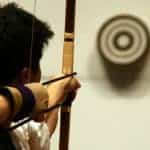- Published on Tuesday, 16 April 2013 12:32
Sometimes just hearing the word ‘Personal Budget’ is enough to make us shudder. Budgets have been given a dull reputation by overzealous financial fanatics, yet they are nothing to be scared of and neither should they be avoided. In fact, a personal budget is something all of us should have.
In fact the great entrepreneurRobert Kiyosaki even said,
“It is important to create a budget and stay faithful to it. Keeping track of what you spend is the best way to avoid buying things you cannot afford.”
A personal budget is an accurate plan of how much money we have coming in and going out each week, fortnight or month, depending on the timeframe we choose to set. It lays out in black and white all income, fixed expenses and discretionary spending money we may have.
A budget is a great way of keeping track of where we are spending money. Once we know where our money is going, we are able to tweak our spending habits to gain more control over our money.
In order to create a workable budget, we first need to know and do these four things:
1. What is our income?
Generally our income is our wages, but this can also include any interest from savings accounts and any social welfare benefits.
The figure that is important to note is our net income, this is the amount we have left in our hands, so to speak, after any taxes are paid.
It would be helpful to record your budget on a excel spreadsheet or notepad to make it easier to read. When doing so, place your net income dollar figure at the top of the page, as this is the amount we need to start with to create a working budget.
2. What are our fixed expenses?
Fixed expenses include payments like rent or mortgages, insurance and rates, utilities such as power, phone, internet and gas, transportation expenses such as petrol, insurances, registration or train and bus ticket costs and finally any other debts or loans like student loans, car payments or hire purchases.
Other possible fixed expenses will change depending on your circumstances, such as needing to pay for childcare or any gym or club memberships you might have.
These fixed expenses do not vary much, if any, each week/fortnight/month. This makes is easy to budget for them, or in the case of petrol, to make an accurate estimation.
Simply subtract each expense from your net income and you are left with your discretionary income.
You can create a column for each of these areas under your total income figure and this makes it easier to see the amounts of money that each area spends.
3. What is our discretionary income?
Our discretionary income is a nice name given to the money we have left after we have paid all our bills.
However, our discretionary income is not just for buying clothes, entertainment or shopping money, but also the more fundamental things such as groceries and pay for doctor appointments, for example.
So, record the dollar amount of your discretionary income underneath the fixed income expenses columns and then we move onto identifying our variable expenses.
4. What are our variable expenses?
Variable expenses include everything else we might use our money for such as groceries, entertainment, regular saving deposits, clothing, medical appointments, haircuts, vet bills, lawn mowing and any little shopping spree splurges we might have.
Everybody’s variable expenses are different, so take the time to record each item in its own column underneath the dollar figure of your discretionary income.
Then, it is time to allocate a fixed amount to each area and make an educated guess of how much you usually spend.
Now comes the fun bit, you get to add up all your estimated variable expenses and see if you have enough discretionary spending money to buy the things you want!
The goal is to have your fixed and variable expenses equal your net income. If you have spent too much, simply reduce the dollar figures you have allocated for your variable expenses. While if you have surplus money, add it to your saving deposits.
A personal budget should be seen as our friend. Yes that does sound weird, but a budget allows us to see where we are spending money and gives us the chance to change our spending behaviors.
Don’t worry if your budget does not work the first time you use it, instead tweak it until it fits. After all, one size does not fit all.
Posts related to Save Money. Get Your Personal Budget In Order
 10 Best Ways To Save Money In The Office
10 Best Ways To Save Money In The Office
As the joke goes; If money is the root of all evil, why should we save money? When we’re running our own business, it’s very important to keep a keen eye on cash flow. Saving money should be right up there on ...
 Affiliate Marketing Basics. Earn Hefty Commissions The Easy Way
Affiliate Marketing Basics. Earn Hefty Commissions The Easy Way
Every good entrepreneur should be using affiliate marketing to build their passive income. All you need to get started is a blog or a website and the world is your oyster! Affiliate marketing is the process of making money online by promoting ...
 Why Market Research Is Vital For SEO
Why Market Research Is Vital For SEO
Your target audience – your customer – the buyer – the person who will hand over their hard-earned dollars to you. Who are they? Market research is an essential ingredient to running a successful website and can impact your SEO efforts. A ...
 Amazing Business Card Design Ideas That Clients Wont Throw Away
Amazing Business Card Design Ideas That Clients Wont Throw Away
If you're anything like me and have a few of your own amazing business cards tucked into your wallet or handbag, you'll be ready to whip one out any time you meet a new prospective client. We've had it drummed into our ...
Tags: discretionary incomefinancial budgetpersonal budgetsave moneyvariable expenses
You must be logged in to post a comment.

